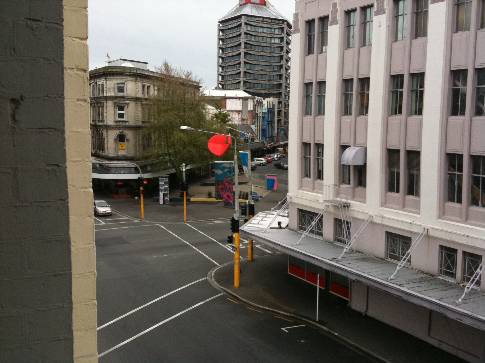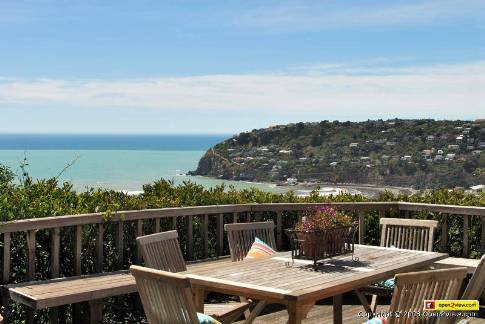I have been observing Alan Gray, Project Director of the redevelopment of Eden Park, over the last couple of days. Alan is a superb leader and is a dictionary definition of being an exemplar. Here are some photos I took.
Author Archive
On the Radio
I was interviewed on RDU on Friday about stickfighting. No, nothing on leadership, changing behaviour or culture, improving safety. I guess stickfighting sounds sexier for morning radio with a predominantly student audience. Anyway, here is the link to the 5-minute interview.
Focus Outward Towards the Customer
I bought a Fisher and Paykel Dishdrawer in January which I couldn’t use until two weeks after purchase. One week for delivery, and another week to replace it as it was broken before it was even out of the box. Two weeks later it has broken down (well at least I got to use it this time). Now the interesting part isn’t that it has broken twice within a few weeks, as bad as that is. What is interesting (and highly annoying) is that it can’t be fixed for three days because the technician won’t be over this side of town until then. I have clients (yes, that is plural) that will be at someone’s house in under an hour if there is a problem. Here however, I have to work around the technician’s schedule (and of course I don’t even know the time so will be waiting around home) because it isn’t convenient to drive here until three days time. Why is this? Is there only a horse and cart available? I doubt it. I think it is because the focus is on the input of what suits the organisation (have the technicians in one area) rather than on the output of serving the customer. So, hand washing dishes for me – mind you, am getting good at it ever since I bought this dishdrawer.
And … hasn’t Fisher and Paykel had some problems over the last year? Hmmm, I have a suggestion or two for areas of improvement.
Gosh – How Many Lessons From This?
Hospital staff unimpressed with pressie
Waitemata Health gives staff departmental phone list for Christmas for key ring; one nurse says it was worse than getting nothing 14 December 2009
Staff at the country’s worst performing hospital for waiting times have been given the bureaucratic equivalent of a lump of coal for Christmas. In their pigeonholes they have found a “small token” of Waitemata Health’s appreciation in the form of a handy departmental phone list, with all the hospital’s vital extension numbers listed in a plastic cover with a tag. Some staff report the tag falls apart when an attempt is made to put it onto a key ring. The apologetic note attached to the gift says sorry it cannot be anything bigger. One nurse says it was worse than getting nothing.
10 Lessons
1. Know your staff.
2. Sometimes doing nothing is better than doing something (especially if it is bad).
3. Always ask, “What will be the effects of this?”
4. How to anchor a bad memory rather than a good memory.
5. Does this demonstrate appreciation?
6. The intention for giving this gift is misaligned with how it was received.
7. One size present does not fit all.
8. Its not about the money – spending more on a present could have got just as bad a reaction.
9. Something that breaks the first time is usually not received terribly well.
10 Know your staff – again, just in case you missed it as number one.
Safeguard Article
This story appeared in Safeguard Update of 16 November.
Positive, immediate, certain
When people tell Dr Kyle McWilliams that their organisation has reached health and safety compliance, he invariably replies: “Well, that’s not very good is it?”
The reaction? “Their jaw drops,” he told delegates at the Conferenz inaugural Total Safety Culture conference in Auckland last month.
There are two types of job performance, he said, ‘just enough’ and ‘want to’. People who do just enough to keep their job are focused on compliance, the minimum level of performance. ‘Want to’ performance includes discretionary effort and is at a much higher level. “This is the one you want for safety.”
McWilliams, director of Christchurch-based consultancy Corporate Learning, said top performance will never be achieved if it is activated by the need for compliance. Instead, he advocated focusing on the consequences of behaviour, and on providing consequences that are positive, immediate, and certain.
Positive consequences are obviously beneficial, and consequences which are immediate and certain are much more powerful motivators than those which arrive in the future or are uncertain.
He asked delegates why they answered the phone. “Because it’s ringing,” came the response. No, he said, that is just the activator of the behaviour. The positive, immediate and certain outcome was that you get to speak to someone.
“Look towards the consequences rather than the activator. Activators have about 20% effect on behaviour. They kick-start it. Consequences have the other 80% effect.”
Health and safety policies, posters, emails, even training – these are all merely activators of behaviour. “If you want to improve behaviour, shift your focus to consequences.”
However, he cautioned that just because a consequence appeared to a worker to be positive, immediate and certain (PIC), didn’t mean it was a safe behaviour. Getting down from a large truck, for example, could be done unsafely by jumping, or safely by climbing down with three points of contact at all times. The trouble is, jumping takes less time and therefore appears to the driver to have PIC consequences.
“Safety is a constant struggle against human nature, because we are programmed to conserve energy. Lots of unsafe behaviours are PIC.”
McWilliams said we are good at identifying what we don’t want people to do. The key, he said, is to define the safe behaviours you want, then work out PIC consequences for them.
He advised looking at recent incidents and listing the behaviours associated with them, and then listing the alternative safe behaviours. “I practically guarantee you will find the unsafe behaviour was PIC because of the activator.”
If you want to change unsafe behaviours, he concluded, “you absolutely must focus on the behaviours you want, and you must provide positive, immediate and certain outcomes for this behaviour.”
Back at Eden Park
Was back at Eden Park last week. Take a look at the stand. What great progress they are making (compare to my earlier photos back in August) and look at how many cranes they have. I felt like a big kid in a sandpit full of toys.
On the Move and a Slight Change in Name
As of Friday 23 October, Millie and I are on the move. Decided it was time we needed a different view and a bit more space. The new address is 137 Clifton Terrace, Sumner, phone 03 326 4001. As part of the move, the accountant needed to do accounting “things” and so Corporate Learning will be no more. It will, however, be replaced with McWilliams Consulting. The only difference, as you can see, is the letterhead (and the new address).
From this view …

to this.

Irrelevant Value: An Oxymoron
My Westpac card is my secondary credit card, one which I use occasionally. The balance, as it has been for the last six months, is about $500 in credit.
Yesterday, Westpac phoned me with a “courtesy” call asking if I would like payment insurance for my credit card (insurance which, should something happen, the bank would pay each month’s minimum payment). I asked the Westpac person if anyone had bothered to actually look at the balance of the account, for if they did, they would have seen that the account has been in credit for several months. He said no one had. I asked why I would want insurance on an account which is always in credit. “Just in case,” he replied.
Value offered is only value if it is relevant. Irrelevant value is an oxymoron as it is not value at all, but rather an annoyance and a signal that you don’t know your customer or client.
What type of value are you offering to your clients?
Award Winning Client
To be an architect of a highly successful process, and to add value to a client is very satisfying. However, the client has to own and run with any process in which an external consultant helps set up and maintain. City Care (www.citycare.co.nz) have taken their behaviour-based safety process and made it their own, and in doing so they have improved safety (the important one!) and, as a result, they have also won a national award.
“Increasing Safe Behaviours at City Care,” an entry showcasing City Care’s health and safety system, won the New Zealand Industry Best Practice – People category at the Roading Excellence Awards on Monday 7 September 2009.The Awards, run by Roading New Zealand, recognise excellence in the planning, design and construction of significant roading projects, as well as the development and implementation of best practice and collaboration in the roading industry.
“We are proud of our company-wide commitment to keeping ourselves and our team mates safe at work and we are delighted that the award judges have selected City Care,” says Onno Mulder, City Care’s Chief Executive.
Congratulations City Care!
Teamwork at Cirque du Soleil
Millie and I were very fortunate to be invited by City Care to Cirque du Soleil: Dralion last week in Auckland. Unfortunately you couldn’t take photos – guess the flash might be slightly off putting to someone doing high-risk acrobatics. In most organisations committees rule over teams (the difference being that in a committee a person can win or lose independent of the committee whereas in a team everyone either wins or loses). Cirque du Soleil demonstrated teamwork, where if one individual failed to achieve their result then everyone in that particular performance failed. On the flipside, when everyone did their job to an extremely high level, everybody in the team achieved success to a very high level and the audience was treated to a truly inspirational performance.


